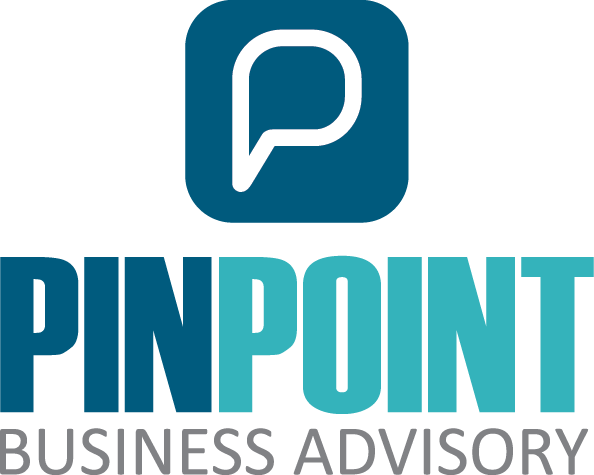BCorp - Q&A / Top Tips
The BCorp Movement & Achieving Accreditation
“What’s it all about?”
When I speak to friends and colleagues about supporting businesses through the BCorp accreditation process, the first thing they ask is usually “what is BCorp?”, which is a fair question. BCorp is a global initiative with a vision that business should be a force for good with the aim to establish an economic system which is inclusive, equitable and regenerative. It does this by encouraging businesses to change their behaviours, systems and cultures to take into account all stakeholders. To drive these changes in attitude at scale, BCorp engages and certifies businesses to improve their overall impact by modelling inclusive, equitable and regenerative business systems.
“Why?”
The next question is generally “why should I be interested?”. Again, this is a good question. In the current environment many organisations are considering how they can measure or improve their environmental, social or governance impact. BCorp is a fantastic way of assessing your current ESG performance, and the impact the organisation has on its staff, customers, suppliers, and the environment. It also provides a means to articulate (and perhaps redefine) your company mission whilst aligning yourself with the wider BCorp community. Of course, demonstrating that the business meets rigorous environmental, social and governance standards will be attractive to potential clients and suppliers and will help in attracting and retaining talent.
“How do I join the movement?”
If the answers to the first two questions have sparked an interest the next question is invariably “So, if my business was interested, what do I need to do to join?”. To become a fully certified BCorp the business must have been trading for at least 12 months and be a ‘for profit business’ (not a charity). The entire business must go through the certification process, it’s not possible to certify a division, brand or department. “What are the minimum requirements?”. The requirements are that applicants are fully transparent about their business operations and practices, a legal change will need to be made to the articles of association taking into account all stakeholders. The business will need to complete the application process which is delivered via an online/dynamic ‘Business Impact Assessment (BIA)’ questionnaire. Once certified the business will need to re-certify every three years.
If your business is less than a year old then you may be eligible for the BCorp Pending certification, which we will detail in a future paper.
“What is the Business Impact Assessment (BIA)?”
If the application process is focused around the Business Impact Assessment (BIA), what is it and what does it involve? The BIA is an online dynamic questionnaire which is tailored to your business based on its size, structure and location. Typically, a business will be asked around two hundred questions across five key impact areas: Governance, Community, Customers, Workers and Environment, and complete a disclosure questionnaire. To meet the criteria a minimum score of 80 points is required. Depending on the particulars of your business, this is usually out of a potential 140 points. What is the purpose of the BIA? The key aims of the BIA are to assess the current impact of the business on all stakeholders and to review and objectively compare your business performance against established criteria. It also allows you an opportunity to use the BIA to target areas for business improvement.
Do I have to pay to use the BIA? No, BCorp will allow any business to use the BIA at no cost (it’s a very simple registration process) which means it can be used by businesses wishing to pursue the accreditation, and also businesses (or not for profit organisations) which just want to review and improve their performance.
“What is the process?”
How does the certification process work? The accreditation process is quite straightforward, after completing the BIA this is submitted to BLab UK (for UK applicants) and will pass through the following stages:
Stage 1 – Evaluation Queue (BLab UK)
Stage 2 – Evaluation (BLab UK)
Stage 3 – Verification Queue (BLab Global)
Stage 4 – Verification (BLab Global)
Stage 5 – Post Verification (BLab Global)
Stage 6 – Certification (BLab Global)
Are there any fees payable? Yes, a small fee is required on submission of the BIA. An annual fee is charged on certification which is on a sliding scale based on business revenue (See BCorp website for their current tariffs - www.bcorporation.net/en-us )
“Top Tips?”
What are the top tips for moving smoothly through the BCorp process? Becoming a BCorp requires taking an exhaustive review of your business, you must be prepared to devote time and resources to this goal. Having a good team is essential, ideally from key parts of the business, eg operations, HR, finance. You should identify good sources of data to answer the BIA questions and be organised and disciplined. Do not forget that the BIA is designed to give you credit (points) for things which your business is doing or has done, you will not get credit for things which the business plans to do. When selecting answers on the BIA only select options where you can support/provide evidence for your answer – you may well be asked to provide that evidence during the validation stage. Experience tells me that you will save a lot of time if evidence / supporting materials are gathered and uploaded as you go through the BIA process rather than waiting until the validation stage.
Some business owners find it beneficial to involve a third party to help them navigate the BIA and manage the project.
Next Steps
To begin your BCorp journey you can register at www.bcorporation.net/en-us/
If you would like to discuss anything contained in this article, or would like some help in moving forward with the BCorp accreditation, then we would be delighted to speak with you.
Contact: Andy James ajames@pinpointba.com

